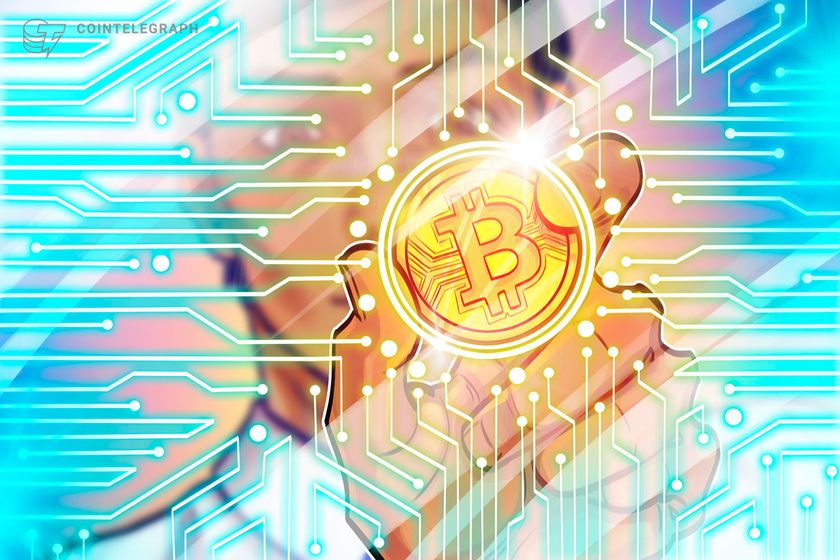N
NewsMaker
Administrator
- USD
- $40,998,899
- Gold
- G4,000


Opinion by: Michael Amar, co-founder of Chain of Events and general partner at v3nture
Once upon a time, in 1848, a man could walk into the wilderness on the brink of poverty and emerge, caked in mud, dust and days-old sweat, a multimillionaire. The discovery of gold in California in the mid-19th century ignited a fuse, causing explosive ripples that transformed the American economy.
In 2025, a relatively new resource, less shiny but no less brilliant and scarce, looks set to reshape the global economy and spark another race for accumulation. Only this time, there won’t be pickaxes and pans. There will be ASICs, algorithms and distributed ledger technology.
Of course, this refers to Bitcoin (BTC), also known as digital gold.
Just as the gold rush spurred on banking, financial systems, lending, trading and changes to monetary policy, history is repeating itself with Bitcoin, digital payments, asset tokenization and crypto-politicians. Laws, regulations and culture changed to accommodate gold. They’re now doing the same for Bitcoin and cryptocurrencies at large.
Exploring the historical parallels
The gold rush created wealth “out of thin air,” and Bitcoin is doing the same. With around $2 trillion in market value, those who adopted early and took the most risk are now millionaires (in fact, over 85,000 are confirmed) and, in some cases, billionaires (there are thought to be 17 of them).
From the hundreds of thousands that descended on California, those who struck real gold used their newfound wealth to build railroads, telegraph lines and entire towns. Bitcoin’s early success stories used their financial muscle to stake further claims by developing applications, growing infrastructure businesses and nurturing the industry. Michael Saylor founded MicroStrategy, which had rebranded to Strategy. This business intelligence company holds over $48 billion worth of Bitcoin, while Changpeng Zhao founded the world’s biggest crypto exchange and is worth over $57 billion.
Recent: Coinbase, Gemini CEO throws support behind Bitcoin-only US crypto reserve
Today’s business analysts and market experts should look into the American gold rush, where they’ll find striking similarities. Just as gold mining once attracted workers and investors, Bitcoin attracts institutions, startups, talent, governments and capital inflows. Gold-backed reserves changed global economics and drove gold demand. Will a US strategic Bitcoin reserve do the same?
Men started the gold rush with pickaxes and pans and ended it with hydraulic mining equipment. The earliest Bitcoin users mined with their home computers, whereas now there are enormous energy-efficient Bitcoin mining facilities, cutting-edge cooling apparatus and the Lightning Network. Scalability and efficiency have leaped forward.
Broader implications for international finance
Beyond instant wealth, infrastructure, monetary policy and economic ripples, there’s monetary sovereignty. Any country that establishes Bitcoin reserves as a hedge against inflation or geopolitical stability takes the future into its own hands. This is identical to gold, which has been used as a reserve for a long time. Since “The Nixon Shock” in 1971, however, the US dollar has decoupled from gold, creating an overdue opportunity for a new resource to fill its large gilded shoes.
Monetary sovereignty is also a major driving force for retail adoption, with Bitcoin offering protection against inflation and government policy through economic decentralization.
Addressing skepticism from different audiences
Widespread enthusiasm among tech leaders, libertarians, celebrities, businesses and popular political figures has met with years of fear, uncertainty and doubt (FUD) from regulators, skeptics and some of the world’s most prominent investment managers. They say that Bitcoin has no real value, but let it be said that gold is just a shiny, semi-scarce rock.
Larry Fink, CEO of BlackRock — the world’s largest investment company with $10 trillion in assets under management — once called Bitcoin “an index of money laundering.” Over the years, he has gone from the messiah of the skeptics to purchasing 2.7% of the global Bitcoin supply and publicly stating his belief that it could reach $700,000 per BTC. “As I became a student of crypto, it was very clear to me that crypto is a currency of fear,” Fink said. “But that’s OK. If you’re frightened of the debasement of your currency or the economic or political stability of your country, you can have an international-based instrument called Bitcoin that can overcome those local fears.”
If Fink can change his mind, so can other skeptics.
In the run-up to his election win, Trump was quite vocal about a strategic Bitcoin reserve, and has continued to be. Things also seem to be taking shape in terms of individual states moving toward building their own reserves.
Gold has had a transformative effect on the world. Bitcoin is now here to relieve it of its duties.
Opinion by: Michael Amar, co-founder of Chain of Events and general partner at v3nture.
This article is for general information purposes and is not intended to be and should not be taken as legal or investment advice. The views, thoughts, and opinions expressed here are the author’s alone and do not necessarily reflect or represent the views and opinions of Cointelegraph.
Actual Crypto Price of Cryptocurrency on the market now
Bitcoin/USD
Ethereum ETH
Litecoin LTC
Solana SOL
Tron TRX
Contacts for ads and profitable Investments
Click Here
Read more

